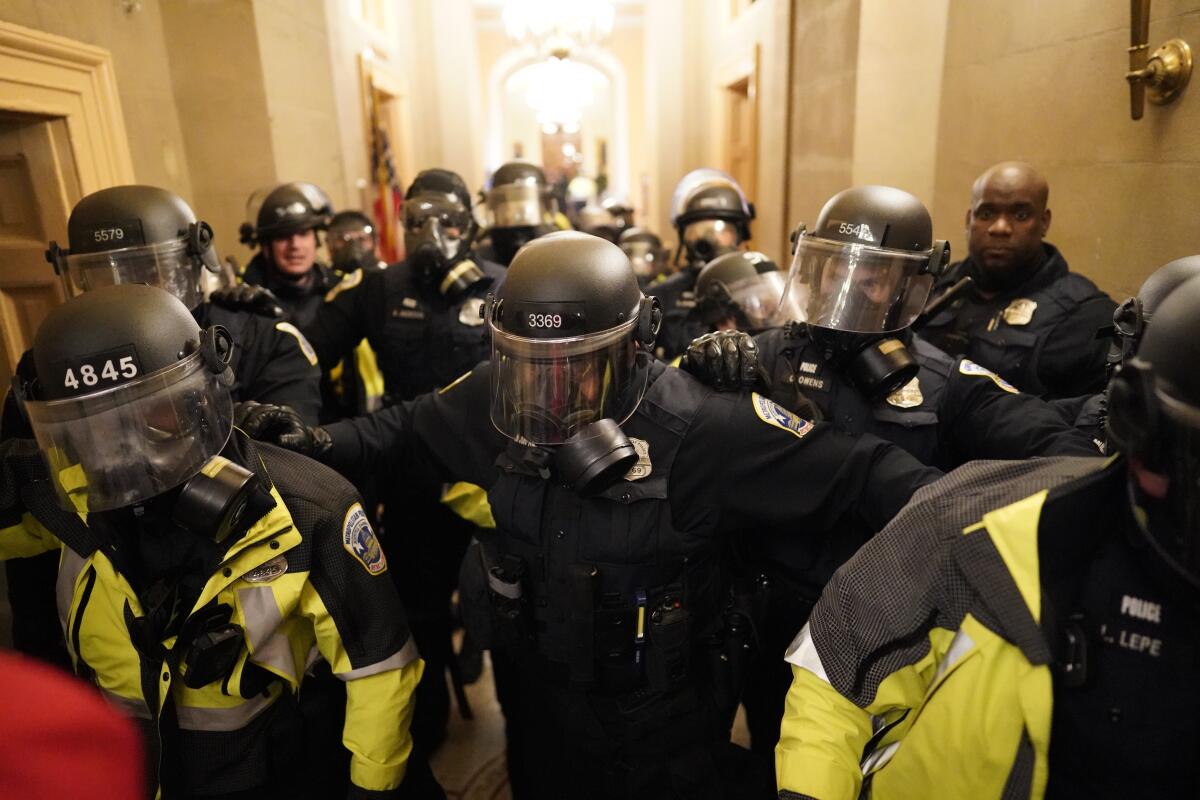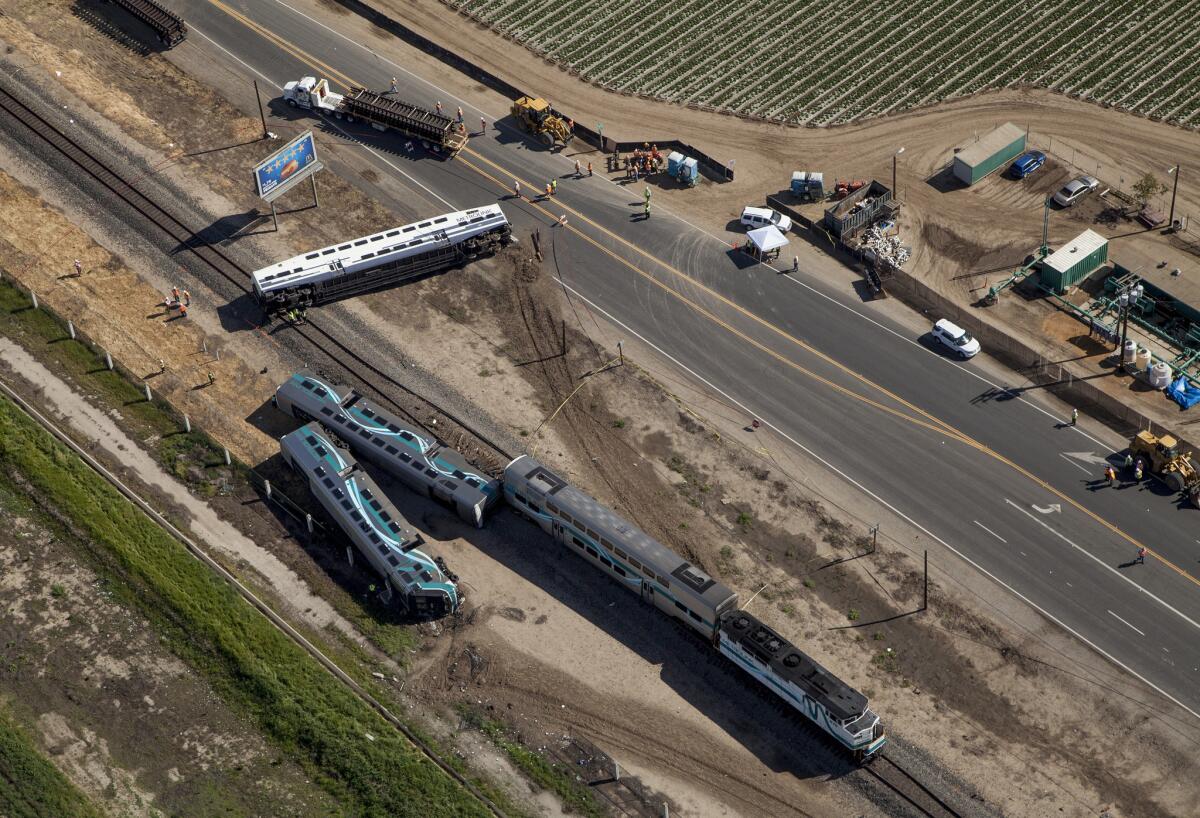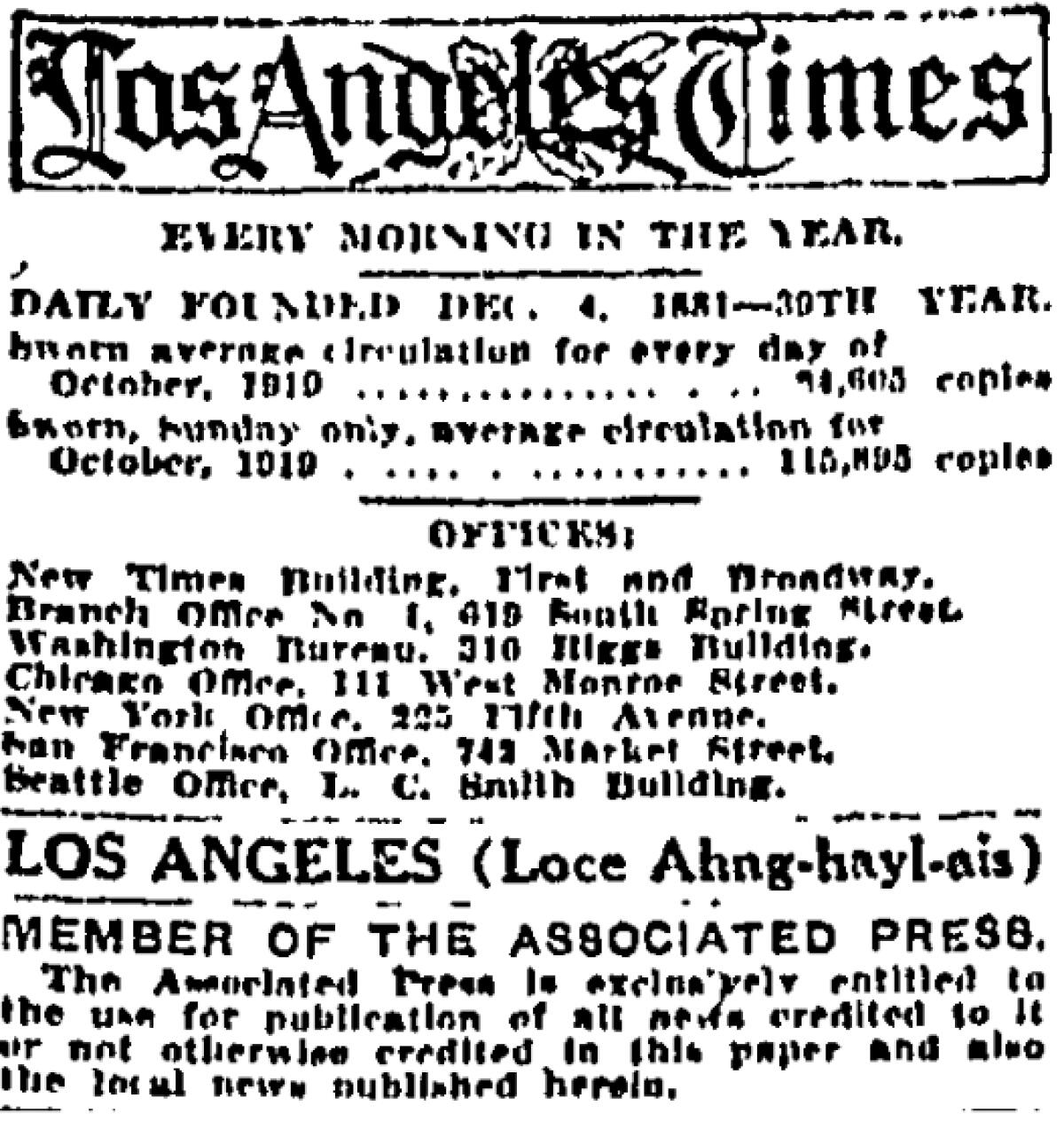Today’s Headlines: The failures before Jan. 6

Former security officials gave their testimony in the first congressional hearing to examine the Jan. 6 insurrection.
TOP STORIES
The Failures Before Jan. 6
Former security officials told Congress in a hearing that faulty intelligence was to blame for failing to properly prepare for last month’s bloody insurrection at the U.S. Capitol.
They testified that federal law enforcement and intelligence agencies did not provide them with specific warnings that the Capitol might come under attack. And they described in dramatic detail their shock at confronting a violent insurrection from a pro-Trump mob and not the manageable protest they had been expecting.
“The events I witnessed on Jan. 6 was the worst attack on law enforcement and our democracy that I’ve seen in my entire career,” said former Capitol Police Chief Steven Sund, who resigned in the days after the attack. “None of the intelligence we received predicted what actually occurred.”
Start your day right
Sign up for Essential California for the L.A. Times biggest news, features and recommendations in your inbox six days a week.
You may occasionally receive promotional content from the Los Angeles Times.
Lawmakers have expressed dismay that Capitol police and federal agencies were caught off guard, especially because media reports had indicated Trump supporters might try to prevent Congress from counting the electoral votes. Senators said they would continue holding such hearings. Meanwhile, the Justice Department is continuing its investigation into the assault.
More Politics
— California Atty. Gen. Xavier Becerra emerged relatively unscathed from the first of two hearings this week on his nomination to be Health and Human Services secretary. Democrats brushed aside Republican assertions that his experience is insufficient for the post.
— Rep. Deb Haaland, who is President Biden’s nominee to head the Interior Department, faced sharp questions from Republicans over what several called her “radical” ideas that include opposition to fracking and the Keystone XL oil pipeline.
The Case of the Codes
In Los Angeles, the rumor spread like wildfire through group texts and email chains: The government was testing the appointment system at a new COVID-19 vaccination site at Cal State L.A., and you could help by using a special vaccine access code to sign up for a shot.
In the Bay Area, the gossip took a slightly different form: Doses at the Oakland Coliseum were about to expire, and you could do your part by making an appointment, again, with a special access code.
The problem, of course, was that none of this was true. Instead, the access codes were a key part of a program designed to help get COVID-19 vaccines into California neighborhoods hit hardest by the pandemic. Intended to address inequities in the distribution of the vaccine, the program instead was being misused — often unwittingly — by people far outside the intended communities.
Gov. Gavin Newsom announced that California would be making changes to the program after The Times’ report about the abuses.
More Top Coronavirus Headlines
— Scientists at UC San Francisco are ready to tag California’s homegrown coronavirus strain as a “variant of concern,” putting it in the company of those from the United Kingdom, South Africa and Brazil.
— COVID-19 vaccine makers told Congress to expect a big jump in the delivery of doses over the coming month, and the companies insist they will be able to provide enough for most Americans to get inoculated by summer.
— A visit to Oxnard shows the difficulties facing California’s Latinos in the fight against the coronavirus.
For more, sign up for Coronavirus Today, a special edition of The Times’ Health and Science newsletter.
Percolating in Huntington Beach
When Newsom was photographed dining at a Napa Valley restaurant during a surge in coronavirus cases, many Californians saw it as hypocrisy. For opponents of a planned $1-billion desalination plant along the Orange County coast, the optics were menacing.
Newsom was celebrating the birthday of a lobbyist for Poseidon Water, which is close to obtaining final government approval for one of the country’s biggest seawater desalination plants.
Poseidon boasts that the facility will provide a local, inexhaustible source of water for Southern California. Critics complain that Newsom and his political appointees are exerting heavy influence to benefit a private company that would produce some of the state’s most expensive supplies.
FROM THE ARCHIVES
At 5:42 a.m. on this day in 2015, a Metrolink train headed toward Los Angeles slammed into a pickup truck on the tracks near Oxnard and derailed, injuring dozens — the engineer fatally.
The disaster renewed scrutiny of progress improving the safety of Southern California grade crossings; the site of the collision was considered one of the state’s most dangerous.
Officials said at the time that the crash would have been “tremendously worse” if not for the train’s new passenger cars, with their state-of-the-art safety design — but months later, Metrolink said it was trying to determine whether a design flaw in one car played a role in derailing the train.

CALIFORNIA
— The L.A. County sheriff said golf star Tiger Woods was “lucky to be alive” after being seriously injured in a rollover crash near Rancho Palos Verdes.
— Hundreds of grocery store workers in unincorporated L.A. County will receive $5 an hour in hazard pay on top of their regular wages as part of a county mandate.
— The L.A. Police Commission has reinstated one of the LAPD’s first Black officers, undoing a 120-year-old injustice.
— Lawrence Ferlinghetti, a poet and titan of the Beat era, has died at 101.
Support our journalism
Subscribe to the Los Angeles Times.
NATION-WORLD
— Top board leaders of Texas’ beleaguered power grid operator said that they will resign after outrage over more than 4 million customers losing electricity last week during a deadly winter storm.
— Authorities said 62 inmates have died in riots at prisons in three cities in Ecuador as a result of fights between rival gangs and an escape attempt.
— In Mexico, feminist opposition to a gubernatorial candidate accused of rape has become a political liability for President Andrés Manuel López Obrador.
— The global journey of a COVID-19 body bag, from the first stitch in Thailand to the final zip.
— The parachute used by NASA’s Perseverance rover to land on Mars contained a secret message, thanks to a puzzle lover on the spacecraft team.
HOLLYWOOD AND THE ARTS
— Zombies are everywhere in South Korean entertainment and literature, feeding on fears and anxieties.
— Healthcare workers are turning to art to cope with the pandemic. Here are some of their projects.
— The new “Ghosts ’n Goblins” video game updates everything but the sexist tropes, critic Todd Martens writes.
— Hillary Clinton is writing a political thriller, and the plot sounds pretty wild.
BUSINESS
— The pandemic has led to new kinds of dine-and-dash scams that take advantage of restaurants’ moves to prioritize safety over in-person security measures, and one popular L.A. restaurant blames the scourge for its decision to close.
— How far will Biden go to fix the climate crisis? Pay attention to this gas project.
SPORTS
— UCLA runner Chris Weiland has been dismissed from the track and field and cross-country teams after a video recording and text message exchange showing him using racist, homophobic and sexist language surfaced on social media, sparking widespread outrage.
— The Dodgers’ first full-squad workout this year was different: no fans, a socially distanced team meeting and the absence of the late Tommy Lasorda.
Free online games
Get our free daily crossword puzzle, sudoku, word search and arcade games in our new game center at latimes.com/games.
OPINION
— Sen. Joe Manchin drives Democrats crazy. Columnist Doyle McManus explains why they need more senators like him.
— The answer to equitable distribution of COVID-19 vaccines is hiding in plain sight, columnist Robin Abcarian writes.
WHAT OUR EDITORS ARE READING
— How Netflix won the race to secure the story of New York’s “fake heiress.” (BBC)
— What to do when you’re in a conflict with a remote colleague? Here are some tips. (Harvard Business Review)
ONLY IN L.A.
How you pronounce Los Angeles place names like “San Pedro” or “Los Feliz” is supposed to be a tell — the idea being that locals don’t say them the proper Spanish way. But there’s a complex story to why we pronounce them as we do, Patt Morrison writes. “The fact that this is still a point of friction 240 years after L.A. was founded is like the mashup saga of the city itself: an outpost of Spain, taken over by Mexico, on-rushed by Yankee immigrants who went from guests to conquerors, and now the mirror-gazing scrutiny of a world-city of immigrants asking itself again and again, who are we, really?” Not even our city’s name was spared the pronunciation wars, and The Times itself got in on the act more than a century ago.

Comments or ideas? Email us at [email protected].
Sign up for Essential California
The most important California stories and recommendations in your inbox every morning.
You may occasionally receive promotional content from the Los Angeles Times.



